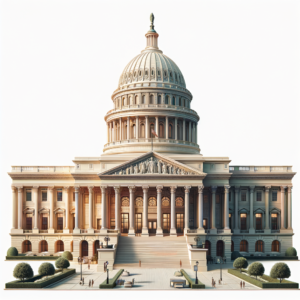Unveiling New State Legislation: A Game-Changer for Citizens' Rights!
In a significant development for civil liberties, state lawmakers have recently passed groundbreaking legislation aimed at enhancing citizens' rights across various domains. This new law is poised to reshape the landscape of individual freedoms, providing citizens with greater protections and resources. As the implications of this legislation unfold, it is crucial to understand its impact, key provisions, and the reactions it has provoked among various stakeholders.
Understanding the Impact of Recent State Legislation on Citizens' Rights
The newly enacted legislation marks a pivotal moment in the ongoing struggle for citizens' rights, addressing long-standing issues such as privacy, freedom of expression, and access to justice. By establishing clearer guidelines and protections, the law aims to empower individuals in their interactions with both government entities and private organizations. Legal experts suggest that this legislation could serve as a model for other states, potentially leading to a nationwide movement toward enhanced civil liberties. As citizens become more aware of their rights, the law is expected to foster a more engaged and informed populace, ultimately strengthening democratic processes.
Key Provisions of the New Legislation: What Citizens Need to Know
Among the key provisions of the new legislation are enhanced privacy protections, the establishment of a citizens' review board for law enforcement practices, and expanded access to legal resources for marginalized communities. The law mandates that individuals must provide explicit consent before their personal data can be collected or shared, thereby reinforcing the principle of informed consent. Additionally, the creation of a review board aims to promote accountability and transparency within law enforcement agencies, allowing citizens to voice concerns and seek redress for grievances. Furthermore, the legislation allocates funding for legal aid services, ensuring that all citizens, regardless of their economic status, have access to legal representation.
Analyzing the Legislative Process: How This Bill Came to Be
The journey of this legislation from conception to enactment was marked by intense debate and collaboration among lawmakers, advocacy groups, and citizens. The bill was introduced in response to growing public demand for reform, particularly following high-profile incidents that highlighted systemic injustices. A series of public hearings were held, allowing stakeholders to present their views and contribute to the bill's development. Lawmakers worked diligently to address concerns raised during these sessions, resulting in a more comprehensive and inclusive piece of legislation. The bill ultimately passed with bipartisan support, reflecting a rare moment of unity in a polarized political landscape.
Stakeholder Reactions: Voices from Citizens, Activists, and Lawmakers
Reactions to the new legislation have been overwhelmingly positive among citizens and advocacy groups, who view it as a significant step forward in the fight for civil rights. Activists have praised the law for its potential to dismantle barriers that have historically marginalized certain communities. "This legislation is a victory for all citizens," stated a prominent civil rights leader. "It acknowledges the struggles faced by many and takes concrete steps to address them." Lawmakers have also expressed their support, emphasizing the importance of protecting citizens' rights in a rapidly changing society. However, some critics argue that while the law is a step in the right direction, it may not go far enough in addressing systemic issues.
Potential Challenges and Controversies Surrounding the New Law
Despite the positive reception, the new legislation is not without its challenges and controversies. Some lawmakers and legal experts have raised concerns about the feasibility of implementing certain provisions, particularly those related to funding for legal aid services. Critics argue that without adequate resources, the law's intended benefits may not reach the communities that need them most. Additionally, there are fears that the establishment of a citizens' review board could lead to conflicts between law enforcement and community members, potentially exacerbating tensions. As the law is rolled out, it will be crucial to monitor these challenges and ensure that the legislation is effectively enforced.
Looking Ahead: Future Implications for Citizens' Rights and Advocacy Efforts
The passage of this new legislation signals a transformative moment for citizens' rights, with implications that extend beyond the state in which it was enacted. Advocacy groups are already mobilizing to leverage this victory as a springboard for further reforms at both the state and national levels. The law could inspire similar initiatives in other jurisdictions, fostering a broader movement toward enhanced civil liberties. As citizens become more empowered to assert their rights, the landscape of advocacy efforts is likely to evolve, with a greater emphasis on grassroots organizing and community engagement. The ongoing dialogue surrounding this legislation will be critical in shaping the future of citizens' rights and ensuring that the progress made is sustained.
In conclusion, the recent passage of new state legislation represents a significant advancement in the protection of citizens' rights. With its comprehensive provisions and strong support from various stakeholders, the law has the potential to empower individuals and promote accountability within government and law enforcement. However, as challenges and controversies arise, it will be essential for advocates and citizens alike to remain vigilant and engaged in the ongoing pursuit of justice and equality. The future of citizens' rights will depend on the collective efforts of all stakeholders to ensure that the principles enshrined in this legislation are realized and upheld.
